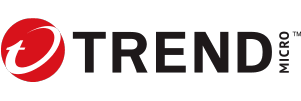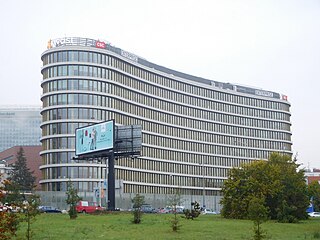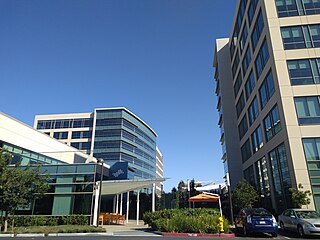Related Research Articles

Antivirus software, also known as anti-malware, is a computer program used to prevent, detect, and remove malware.

Trend Micro Inc. is an American-Japanese cyber security software company. The company has globally dispersed R&D in 16 locations across every continent excluding Antarctica. The company develops enterprise security software for servers, containers, & cloud computing environments, networks, and end points. Its cloud and virtualization security products provide automated security for customers of VMware, Amazon AWS, Microsoft Azure, and Google Cloud Platform.
Sophos Ltd. is a British security software and hardware company. It develops and markets managed security services and cybersecurity software and hardware, such as managed detection and response, incident response and endpoint security software. Sophos was listed on the London Stock Exchange until it was acquired by Thoma Bravo in February 2020.
Panda Security is a Spanish cybersecurity software company. Panda Security's core offering is an antivirus software and more recently has expanded into providing and developing cybersecurity software. This includes security products and services for both businesses and home users, as well as protection tools for systems, networks, emails, and other private information. Panda Security employs around 458 people.

Avast Software s.r.o. is a Czech multinational cybersecurity software company headquartered in Prague, Czech Republic, that researches and develops computer security software, machine learning, and artificial intelligence. Avast has more than 435 million monthly active users and the second largest market share among anti-malware application vendors worldwide as of April 2020. The company has approximately 1,700 employees across its 25 offices worldwide. In July 2021, NortonLifeLock, an American cybersecurity company, announced that it was in talks to merge with Avast Software. In August 2021, Avast's board of directors agreed to an offer of US$8 billion.

Ivanti is an IT software company headquartered in South Jordan, Utah, United States. It produces software for IT Security, IT Service Management, IT Asset Management, Unified Endpoint Management, Identity Management and supply chain management. It was formed in January 2017 with the merger of LANDESK and HEAT Software, and later acquired Cherwell Software. The company became more widely known after several major security incidents related to the VPN hardware it sells.
Webroot Inc. is an American privately-held cybersecurity software company that provides Internet security for consumers and businesses. The company was founded in Boulder, Colorado, US, and is now headquartered in Broomfield, Colorado, and has US operations in San Mateo and San Diego, and globally in Australia, Austria, Ireland, Japan and the United Kingdom.
Sandboxie is an open-source OS-level virtualization solution for Microsoft Windows. It is a sandboxing solution that creates an isolated operating environment in which applications can run without permanently modifying the local system. This virtual environment allows for controlled testing of untrusted programs and web surfing.

Sourcefire, Inc was a technology company that developed network security hardware and software. The company's Firepower network security appliances were based on Snort, an open-source intrusion detection system (IDS). Sourcefire was acquired by Cisco for $2.7 billion in July 2013.

VirusTotal is a website created by the Spanish security company Hispasec Sistemas. Launched in June 2004, it was acquired by Google in September 2012. The company's ownership switched in January 2018 to Chronicle, a subsidiary of Google.

Symantec Endpoint Protection, developed by Broadcom Inc., is a security software suite that consists of anti-malware, intrusion prevention and firewall features for server and desktop computers. It has the largest market-share of any product for endpoint security.

Comodo Internet Security (CIS) is developed and distributed by Comodo Group, a freemium Internet security suite that includes an antivirus program, personal firewall, sandbox, host-based intrusion prevention system (HIPS) and website filtering.
The Opal Storage Specification is a set of specifications for features of data storage devices that enhance their security. For example, it defines a way of encrypting the stored data so that an unauthorized person who gains possession of the device cannot see the data. That is, it is a specification for self-encrypting drives (SED).

Malwarebytes Inc. is an American Internet security company that specializes in protecting home computers, smartphones, and companies from malware and other threats. It has offices in Santa Clara, California; Clearwater, Florida; Tallinn, Estonia; Bastia Umbra, Italy; and Cork, Ireland.

Kaspersky Lab is a Russian multinational cybersecurity and anti-virus provider headquartered in Moscow, Russia, and operated by a holding company in the United Kingdom. It was founded in 1997 by Eugene Kaspersky, Natalya Kaspersky and Alexey De-Monderik. Kaspersky Lab develops and sells antivirus, internet security, password management, endpoint security, and other cybersecurity products and services.
Trusteer is a Boston-based computer security division of IBM, responsible for a suite of security software. Founded by Mickey Boodaei and Rakesh K. Loonkar, in Israel in 2006, Trusteer was acquired in September 2013 by IBM for $1 billion.

Palo Alto Networks, Inc. is an American multinational cybersecurity company with headquarters in Santa Clara, California. The core product is a platform that includes advanced firewalls and cloud-based offerings that extend those firewalls to cover other aspects of security. The company serves over 70,000 organizations in over 150 countries, including 85 of the Fortune 100. It is home to the Unit 42 threat research team and hosts the Ignite cybersecurity conference. It is a partner organization of the World Economic Forum.
Lastline, Inc. is an American cyber security company and breach detection platform provider based in Redwood City, California. The company offers network-based security breach detection and other security services that combat malware used by advanced persistent threat (APT) groups for businesses, government organizations and other security service providers. Lastline has offices in North America, Europe, and Asia.
Cylance Inc., is an American software firm based in Irvine, California, that develops antivirus programs and other kinds of computer software that prevents viruses and malware.
WatchGuard, formally known as WatchGuard Technologies, Inc, is an American technology company based in Seattle, Washington. It specializes in network security solutions aimed at safeguarding computer networks from external threats such as malware and ransomware.
References
- 1 2 "Sophos Adds Advanced Machine Learning to Its Next-Generation Endpoint Protection Portfolio with Acquisition of Invincea". Sophos. 2017-02-08. Archived from the original on 2017-05-09. Retrieved 2017-02-11.
- 1 2 "Sophos grows anti-malware ensemble with Invincea". Sophos. 2017-02-08. Archived from the original on 2017-02-10. Retrieved 2017-02-11.
One may ask, if you already have great next-generation technology, why do you need Invincea's technology?...Think of Invincea as the superhero that takes our ensemble to the next level – the entity that adds neural network-based machine learning to the team.
- 1 2 "Sophos to Acquire Invincea to Add Industry Leading Machine Learning to its Next Generation Endpoint Protection Portfolio". Invincea. 2017-02-08. Archived from the original on 2017-08-08. Retrieved 2017-02-11.
- 1 2 Gregg, Aaron (2017-02-08). "Fairfax City cyber start-up Invincea sells to a British firm for up to $120 million". Washington Post. Archived from the original on 2017-03-12. Retrieved 2020-05-05.
- ↑ "Dell Invests in 'Zero-day' Security Startup Invincea - The CIO Report - WSJ". WSJ. Archived from the original on 2014-10-06. Retrieved 27 October 2014.
- ↑ Acohido, Byron (4 July 2012). "Military enlists Invincea to beef up Android security". usatoday.com. USA Today. Archived from the original on 2014-10-14. Retrieved 8 October 2014.
- ↑ Robert Westervelt. "Invincea Lands Container Deal On Dell Commercial Laptops". CRN. Archived from the original on 6 October 2014. Retrieved 27 October 2014.
- 1 2 Preimesberger, Chris (16 May 2016). "Invincea Debuts New Invisible Endpoint Security Agent". eWeek. Archived from the original on 16 March 2024. Retrieved 28 January 2017.
- ↑ "Sandboxie acquired by invincea: what it means". gHacks Technology News. Archived from the original on 6 October 2014. Retrieved 27 October 2014.
- ↑ "Invincea Launches X-as-a-Service Managed Security". eWEEK. Archived from the original on 2024-03-16. Retrieved 2020-05-05.
- ↑ "Invincea Labs announces corporate name change to Two Six Labs". GlobeNewswire News Room (Press release). 14 August 2017. Archived from the original on 4 April 2019. Retrieved 4 April 2019.
- ↑ Wright, Tom (31 January 2018). "Sophos integrates $100m acquisition into new next-gen offering". CRN. Archived from the original on 31 January 2018. Retrieved 17 January 2019.
- ↑ "Invincea End of Service". 26 September 2018. Archived from the original on 27 September 2018. Retrieved 26 September 2018.
- ↑ "Invincea: A Sophos Company". www.sophos.com. Archived from the original on 4 April 2019. Retrieved 4 April 2019.
On April 16th 2018 Sophos announced the immediate end of sale for all Invincea-related products. Support and maintenance would be available under existing contracts through December 31st, 2019, at which point support and maintenance for Invincea products would cease.
- ↑ "The Sandboxie Windows sandbox isolation tool is now a open-source!". BleepingComputer. Archived from the original on 2020-04-11. Retrieved 2020-06-15.